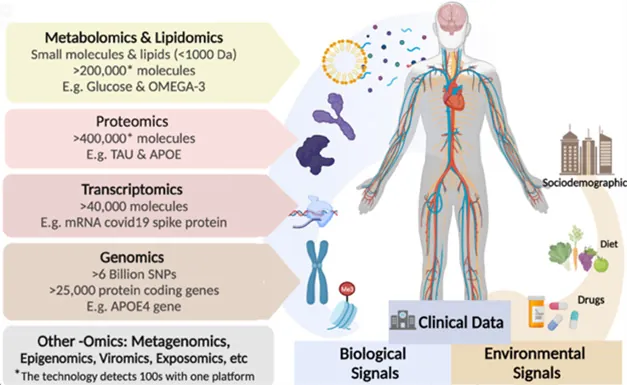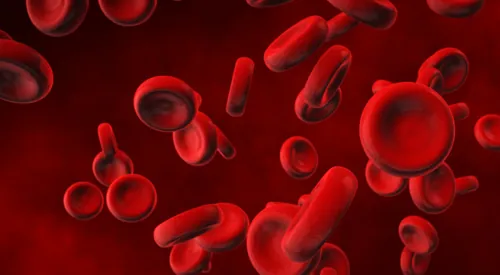
Groundbreaking Research Links Brain Metabolites to Alzheimer’s and Parkinson’s Diseases!
2024-12-12
Author: Li
Groundbreaking Research Links Brain Metabolites to Alzheimer’s and Parkinson’s Diseases!
In a significant leap forward in understanding neurodegenerative diseases, a team of scientists led by Carlos Cruchaga at Washington University in St. Louis has unveiled groundbreaking findings that link genetic variants with hundreds of metabolites in the brain and cerebrospinal fluid (CSF) of over 3,000 participants. This transformative research, published in Nature Genetics on November 11, highlights potential pathways connecting metabolism to Alzheimer’s disease (AD), Parkinson’s disease (PD), and more.
Metabolites, which are small molecules that reflect biochemical processes in our bodies, have long been associated with health and disease through studies involving blood and urine. However, this latest investigation shifts focus to the brain, offering new insights into the inherited aspects of metabolism. The research correlated 139 metabolites in CSF with 96 genetic loci, and it identified 31 metabolites in brain tissue connected to 24 loci, with more than two-thirds implicated in various human diseases. Notably, the infamous APOE4 gene, recognized as a major risk factor for both Alzheimer’s disease and frontotemporal dementia, was linked to specific phosphocholines in CSF.
"This gene-to-molecule research is crucial for discovery in Alzheimer’s disease," explained Cristina Legido Quigley from King’s College London, emphasizing the study’s potential to reshape our understanding of how genetic risk factors can influence disease progression.
The intricate study expanded the realm of metabolomics—an emerging field that examines the vast array of small molecules present in biological samples. Prior research had explored such genetics in a much smaller cohort, but Cruchaga’s team included 2,602 subjects for CSF analysis and over 1,000 for brain sample analysis, integrating data from six Alzheimer’s research cohorts.
Utilizing a comprehensive approach, the researchers examined 440 metabolites in CSF and 962 metabolites in brain samples, including amino acids, carbohydrates, lipids, and vitamins. The results revealed 205 unique metabolite/genetic variant pairs, indicating that some metabolites are influenced by multiple genetic variations.
What’s even more fascinating is that 14 loci identified had never before been associated with metabolites in any tissue, highlighting the importance of investigating metabolomics in relevant biological contexts. The algorithm employed by the researchers pinpointed 118 genes responsible for 205 CSF signals and 25 genes linked to brain metabolites, most of which are primarily expressed by astrocytes—cells crucial for brain metabolism regulation.
In a bid to connect the dots between metabolites and disease, the team cross-referenced their findings with broader genetic association studies covering 23 traits, including neurodegenerative diseases, obesity, and cognitive performance. They uncovered notable overlaps, such as a polymorphism in the APOE gene being linked to glycerophosphocholines in CSF, a compound also associated with increased risk for Alzheimer’s and cognitive decline.
Moreover, links were established between low levels of CSF O-sulfo-L-tyrosine and Parkinson’s disease risk, through genetic variants associated with ARSA—a gene that encodes a chaperone for alpha-synuclein, suggesting that metabolic changes may pave the way for neurodegenerative processes.
This research illuminates the intricate interplay between genetics, metabolism, and disease, opening new avenues for potential biomarkers and therapeutic strategies aimed at metabolic intervention for conditions like Alzheimer’s and Parkinson’s. The findings underscore not just a correlation, but a compelling framework for understanding how genetic predispositions could lead to metabolic disruptions, ultimately paving the path for innovations in prevention and treatment.
For those wanting to dive deeper into the metabolites and diseases analyzed in this groundbreaking study, all raw data is accessible online at Washington University Metabolomics Database.
Stay tuned as we follow up on more revelations from the world of neuroscience that could transform our understanding of debilitating diseases!


 Brasil (PT)
Brasil (PT)
 Canada (EN)
Canada (EN)
 Chile (ES)
Chile (ES)
 España (ES)
España (ES)
 France (FR)
France (FR)
 Hong Kong (EN)
Hong Kong (EN)
 Italia (IT)
Italia (IT)
 日本 (JA)
日本 (JA)
 Magyarország (HU)
Magyarország (HU)
 Norge (NO)
Norge (NO)
 Polska (PL)
Polska (PL)
 Schweiz (DE)
Schweiz (DE)
 Singapore (EN)
Singapore (EN)
 Sverige (SV)
Sverige (SV)
 Suomi (FI)
Suomi (FI)
 Türkiye (TR)
Türkiye (TR)